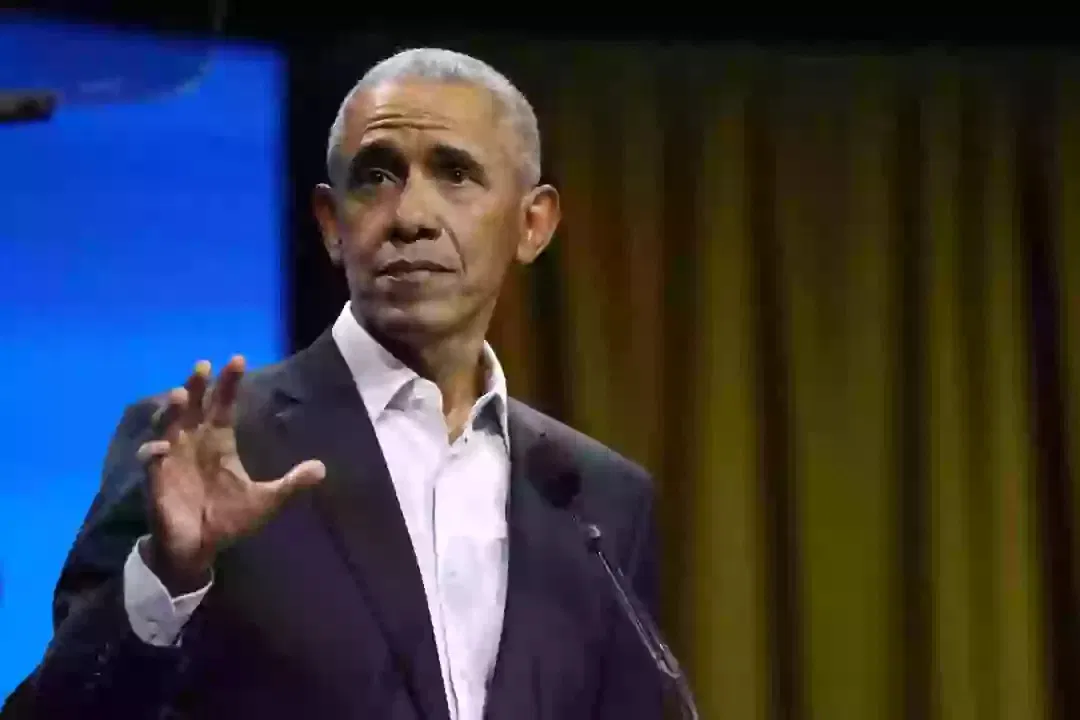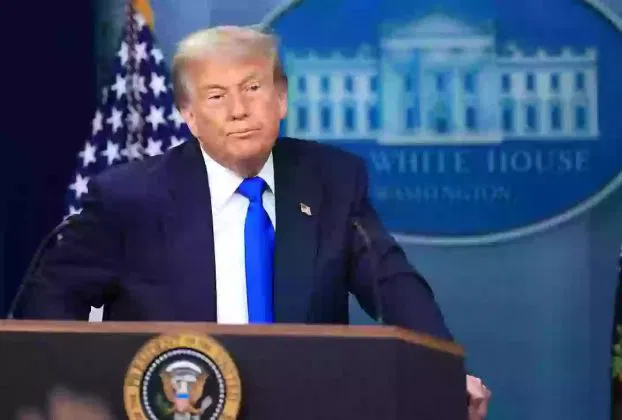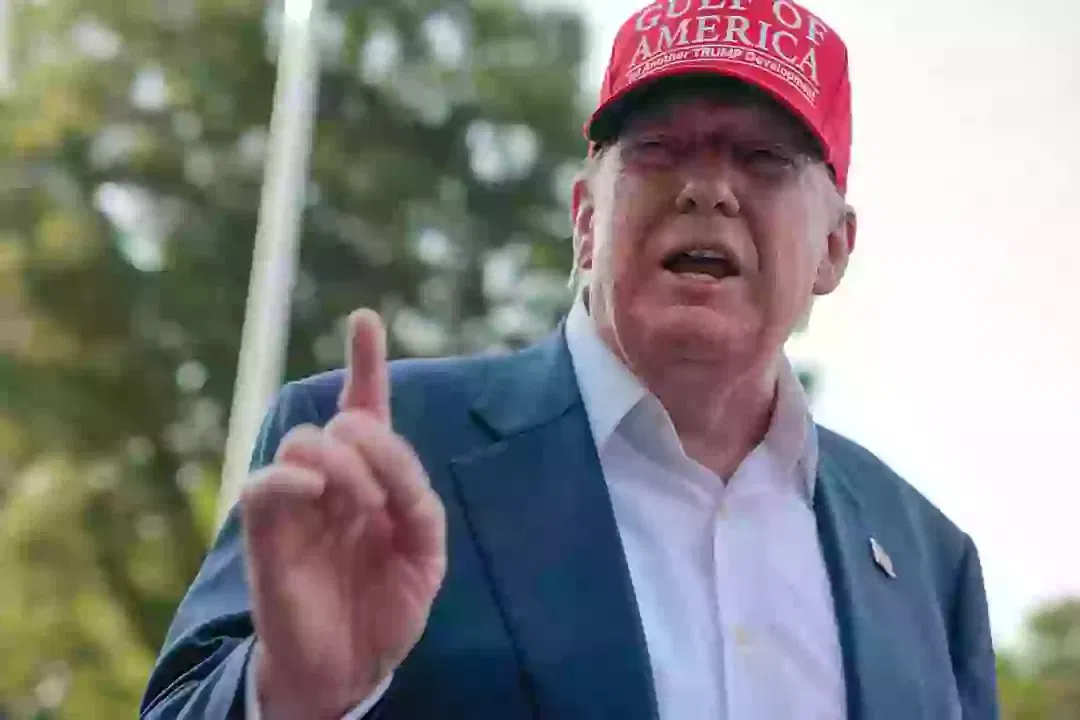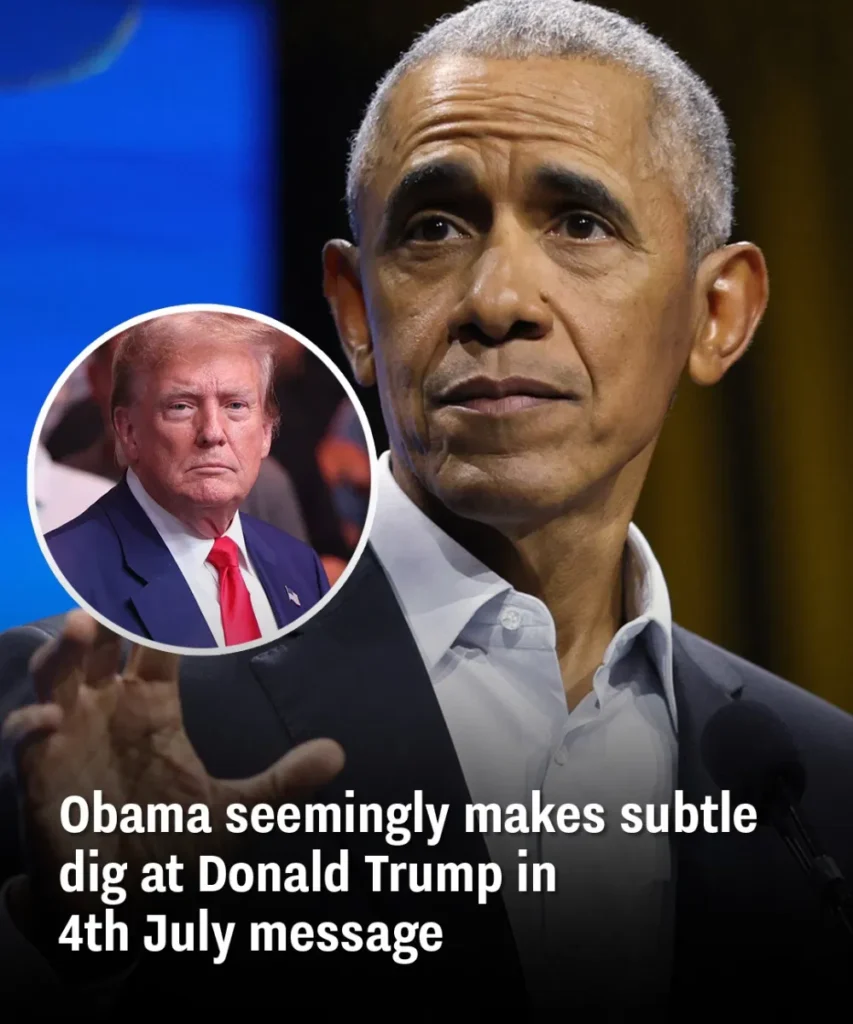Washington D.C. – As fireworks lit up the night sky on the Fourth of July, a different kind of spark ignited across social media, courtesy of former President Barack Obama. What many are calling a subtle, yet undeniably sharp, criticism of Donald Trump and his administration’s recent legislative victory, Obama’s Independence Day message has resonated deeply, igniting a fervent debate and a wave of emotional responses across a politically charged nation.
The speculation erupted just days after Congress narrowly passed Trump’s controversial, nearly 1,000-page “big, beautiful bill” on July 3rd, with a razor-thin 218-214 vote. This massive piece of legislation, a cornerstone of Trump’s 2024 presidential campaign promises, is projected to add a staggering $3.4 trillion to the national debt over the next decade, piling onto an already colossal $36.2 trillion burden. But beyond the fiscal implications, the bill’s key elements include sweeping tax cuts that disproportionately benefit the wealthy, alongside severe reductions in federal spending on vital programs like healthcare and food safety. These cuts threaten to unravel safety nets for millions of vulnerable Americans, sparking widespread fear and outrage.

Before the bill even reached a vote, former President Obama had issued a passionate, urgent plea to the American people. He called on citizens to take immediate action, urging them to contact their representatives and vehemently oppose the legislation. His words were a stark warning, painting a grim picture of the potential human cost: “Over 16 million Americans could lose their healthcare because Republicans in Congress are trying to push through legislation that slashes Medicaid funding and weakens the Affordable Care Act,” he warned. He didn’t mince words, adding, “If the House passes this bill, it will drive up costs and damage working families for generations. Call your representative and urge them to vote no.” His plea underscored the profound impact this bill could have on everyday lives, from access to doctors to the quality of the food on their tables.
Then, on Independence Day itself, just as the nation prepared to celebrate its founding principles, Obama delivered his powerful social media message. Without directly naming names or policies, his words served as a poignant reminder of collective responsibility and the core democratic values he championed. He wrote, “Independence Day is a reminder that America is not the work of any one individual.” This opening line immediately set a tone of inclusivity, subtly contrasting with the “I alone can fix it” rhetoric often associated with his successor.

He continued, emphasizing the power of unity: “The most powerful word in our democracy is ‘We.’ ‘We the People.’ ‘We Shall Overcome.’ ‘Yes We Can.’ America isn’t owned by a single person—it belongs to everyone.” This powerful reiteration of “We” over “I” was widely interpreted as a direct, albeit veiled, criticism of Trump’s populist, individual-centric approach to leadership. Obama’s message then broadened, touching on the global challenges facing democratic ideals: “Right now—at a time when core democratic values are under constant threat, and when global cynicism and apathy are widespread—this is exactly when we must reflect deeply on how to strengthen our democracies so they truly serve everyday people.”
The public reaction was immediate and intense. Many interpreted the message as a much-needed voice of reason and inspiration during a deeply troubling political moment, a beacon of hope in what felt like a storm. Social media platforms buzzed with responses, reflecting a nation grappling with division and uncertainty.

One person, clearly moved by Obama’s words, responded with raw emotion: “I’m trying to celebrate today, but it’s hard knowing how many millions will be stripped of critical support because of this bill. That line—‘America is owned by no one. It belongs to all citizens.’—really hit home. Amen, sir.” Another comment echoed a widespread sentiment of despair, yet found solace in the message: “Thank you. Please keep sharing these encouraging words. I’ve never felt this level of despair before.” These reactions underscore the profound impact of Obama’s carefully crafted words, offering a sense of shared understanding and a call to collective action in a time of deep political anxiety.
In a political landscape often defined by direct confrontation, Obama’s subtle yet potent message served as a powerful counter-narrative, reminding Americans of the enduring ideals of unity, shared responsibility, and the fundamental principle that the nation belongs to all its citizens, not just one. It was a 4th of July message that transcended mere celebration, becoming a rallying cry for democratic values in a turbulent era.
Beta feature
Beta feature


